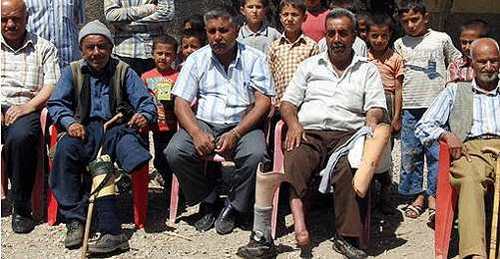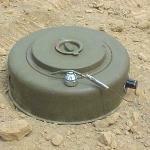Stuart Casey-Maslen is a representative of the Nobel Prize winning International Campaign to Ban Landmines (ICBL), as well as coordinator of Landmine Monitor and editor of its annual report.
He has been following the situation in Turkey closely, and he spoke to bianet about the clearance of landmines and unexploded ammunition, as well as the destiny of cleared land.
NGOs with expertise
Casey-Maslen pointed out that private companies were not the only choice in mine clearance, but that expert international NGOs existed. In second place were national armies, which in Nicaragua, Yemen and Raunda, for instance, cleared mines, with differing results. Only in third place were there private companies.
The Turkish Armed Forces had suggested that Turkey get support from NATO's Maintenance and Supply Agency (NAMSA). According to Casey-Maslen, however, NAMSA has expertise in the destruction of stockpiled mines or unexploded ammunition rather than mine clearance. NAMSA usually does not clear mines itself but subcontracts that procedure.
In countries like Afghanistan, Angola, Azerbaijan, Cambodia, Croatia, Iraq and Laos, all widely affected by mines, mine clearance was carried out by NGOs and companies.
Land needs to be turned over to owners or users
The mine expert argued that cleared land had to be turned over to its owners or those people using the land. There are two ways to do this. One is through legislation, and the second is through building up trust, so that local people really believe that the land has been cleared.
He further pointed out that if border gates were to be opened (i.e. between Turkey and Syria), clear marking had to show safe and unsafe areas.
Turkey's reports unsatisfactory
Casey-Maslen criticised the lack of details in Turkey's reports on its mine situation. There is currently not enough information about which areas are mined and which have been cleared. Details about the standard of clearance and quality management are also missing.
Controversial bill
According to a bill brought to parliament by the ruling Justice and Development Party (AKP), the government wants to entrust the clearance to institutions in return for the use of the land for 44 years at the most. As international NGOs, NAMSA or UN bodies do not practice agriculture, this means that the bid will go to private companies.
Some local villagers claim ownership of the land in question, and mine victims, too, want to benefit from the land.
The bill also foresees not applying the law on bids in this case, which means that transparency would be compromised.
According to the UN's Ottowa Treaty, Turkey has until 2014 to clear its land of mines. (TK/AG)






